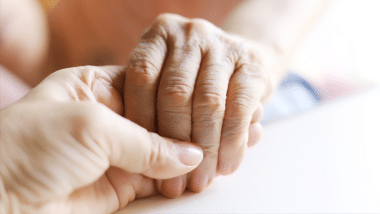A palliative care expert with more than 30 years’ experience has warned the Republic of Ireland that assisted suicide attacks the very heart of medical care.
Speaking to the Oireachtas Joint Committee on Assisted Dying, Professor Roderick MacLeod of the University of Auckland said removing end-of-life protections would send “the message that some lives are not worth living”, which could “place pressure on vulnerable people including older people, those living with dementia and those with disabilities”.
The Oireachtas Joint Committee on Assisted Dying is due to make recommendations on the issue by next month.
No protections
Prof MacLeod stated: “Euthanasia, or assisted dying in any form, is antithetical to the purpose and practice of medicine and has the potential to put pressure on vulnerable people to end their lives, to undermine palliative care services and to change society’s broader perceptions about suicide.”
He said no law can prevent family members with “vested interests” from coercing their relatives into receiving help to be killed, or reduce the “traumatic” effect on clinicians who assist them.
The Professor highlighted that requests to be killed are “rarely sustained once effective palliative care is provided”, and in 30 years of experience he only knew one man who still wanted to die after receiving palliative care.
‘Unacceptable’
Professor Merete Nordentoft, a Professor in Psychiatry at the University of Copenhagen, also told the Committee that it should be discussing “assisted living instead of assisted dying”.
She stated: “The very existence of an offer of assisted dying will decisively change our ideas about old age, the coming of death, living with disability, quality of life and what it means to take others into account.”
Professor Nordentoft, who is a member of the Danish Council of Ethics, said the Council agreed that legalising assisted suicide “may cause unacceptable changes to basic norms for society and healthcare”.
In October, the ethicists decided it was “in principle impossible to establish proper regulation of euthanasia” and recommended to the Danish Parliament that the law remain unchanged.
‘Better off dead’
Last month, a disability group urged the Oireachtas to prioritise the “right to live” over the “right to die”.
Peter Kearns of the Independent Living Movement Ireland told the Joint Committee on Assisted Dying that many disabled people had huge concerns about the possible introduction of assisted suicide.
He warned that in other parts of the world where assisted suicide had been legalised, “disabled people frequently speak about feeling hopeless, ‘having nothing to live for’ or feeling they would be ‘better off dead'”.
Among those living with an impairment, he explained, many fear that their lives may be deemed “not worth living”.
Irish Medical Council slammed for ditching ‘don’t kill patients’ guidance
Poll on assisted suicide reveals ‘stark judgments’ about vulnerable


